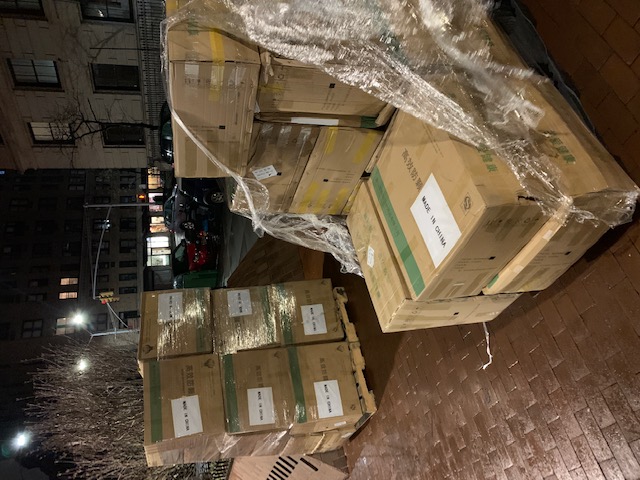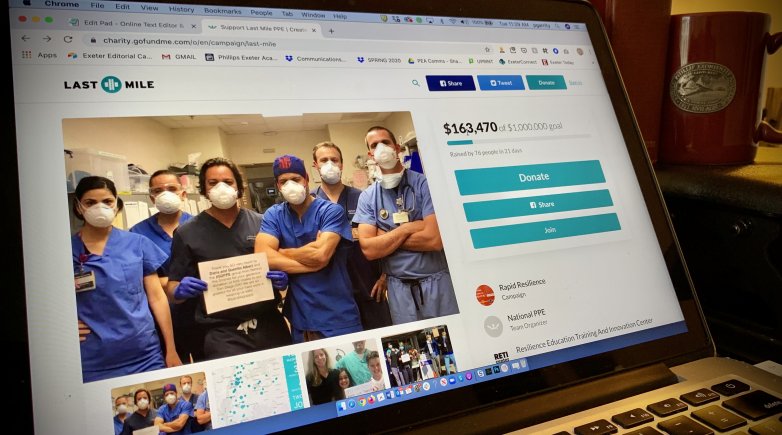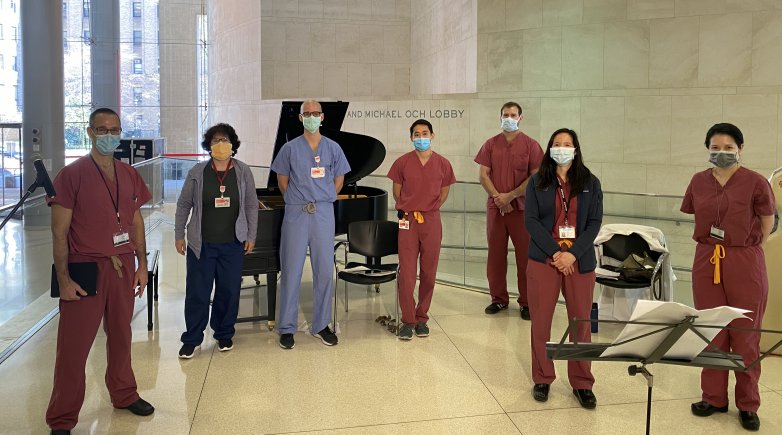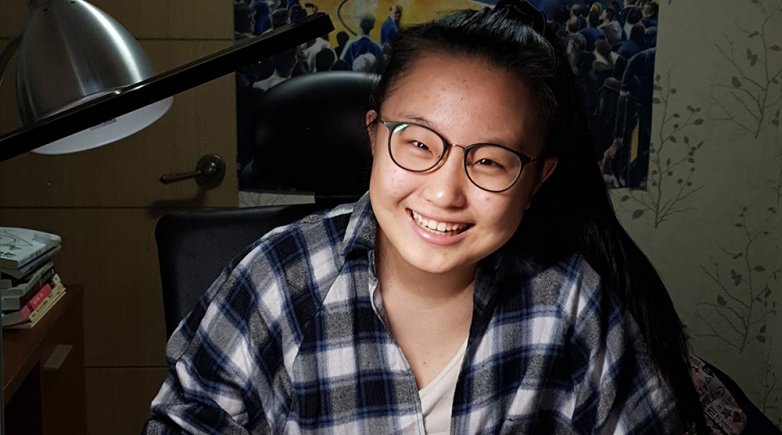How a non sibi network delivered 80,000 face masks
Lisa Cloitre '90 and her fellow Exonians tapped into their 'knowledge and goodness' to make a difference.
As the COVID-19 pandemic began spreading through the United States, one thing became painfully clear: Health-care workers fighting the new coronavirus faced dire shortages of personal protective equipment (PPE), particularly the heavy-duty masks known as N95 respirators.
In mid-March, Lisa Cloitre ‘90 didn’t know much about N95s, or any other type of masks, when she decided to shoot a quick email to fellow alum Sarah Millard ‘92, who co-founded an environmental consulting company called PureLiving China in Shanghai. Millard’s advice about confronting COVID-19 was simple: No matter what anyone says, everyone should wear a mask.
Cloitre had already heard about the shortage of masks from a couple of doctor friends. There are no masks, she wrote back. “Her reply was: I have 80,000 of them that I’m looking at in my office right now,” Cloitre recalls.
From there, everything moved very quickly. Reaching out to her local networks, Cloitre confirmed that a Boston hospital, Beth Israel Lahey Health, would take 40,000 of the 80,000 Chinese-made KN95 masks, which offer the same level of protection as N95s but aren’t officially certified by the U.S. National Institute for Occupational Safety and Health (NIOSH). She asked Millard to ship another 1,000 masks to her Back Bay condo to distribute locally, but that still left 39,000 unspoken for.
When Cloitre posted a message on Facebook about having a source with masks, Russell Washington ‘89 recommended she join a WhatsApp group dedicated to matching people with supplies of PPE to health workers on the ground, especially in New York City, which was fast becoming the epicenter of the COVID-19 outbreak in the U.S.
In New York, Dr. Sarp Aksel ‘06, an OB/GYN in private practice on the Upper East Side, joined the same WhatsApp group in part thanks to Washington (whom Cloitre calls the “super-connector” of the group). Knowing New York was facing a critical PPE shortage just as the pandemic was about to surge, Aksel jumped on Cloitre’s remaining 39,000 masks.
“I was seeing on the front lines that we definitely don’t have the right stock [of N95 masks],” he says. “Pretty soon we were going to be in a situation where we were going to get overrun.”
Cloitre wired Millard money to pay for the masks out of pocket — "with the exception of purchasing my home, it’s the largest single purchase I’ve ever made,” she says — and they arrived at JFK Airport on March 31. A delivery van dropped two pallets outside Aksel’s office around 10 o’clock that night, and he carried 800 pounds of masks up the stairs to his second-floor office, stashing them in a conference room. 
Over the next 12 days, Aksel and a group of fellow volunteers personally delivered the masks to more than 450 providers at two-thirds of the hospitals in New York City. They focused distribution efforts on the highest-need, highest-risk providers, including anesthesiologists, emergency physicians, ICU physicians, nurses and others, as well as those serving under-represented populations.
From that first grassroots initiative, the group launched Last Mile, a volunteer network with branches in Boston, New Orleans, Chicago, Los Angeles, San Francisco, and Washington D.C., that aims to distribute PPE to health workers around the country. “The idea is that through our networks, we’re filling the ‘last mile’ in the supply chain,” says Aksel, who serves as medical adviser for the fledgling organization.
In Boston, where she has spent the better part of two months self-isolating with her 3-year-old son while trying to keep up her independent consulting business from home, Cloitre marvels at what her simple email exchange with a fellow Exonian was able to set into motion.
“There’s been this huge non sibi network, and connections with people that have helped me,” she says. “I never would have imagined that I could be this useful, that I could be doing something from home” to help out during the crisis.
Proceeds from a GoFundMe campaign organized by Cloitre and Aksel, which has raised more than $60,000, will go to Rapid Resilience, an emergency response initiative of the Resilience, Education, Training and Innovation (RETI) Center, a New York City-based nonprofit and will be used to help reimburse Cloitre for her mask purchase.


